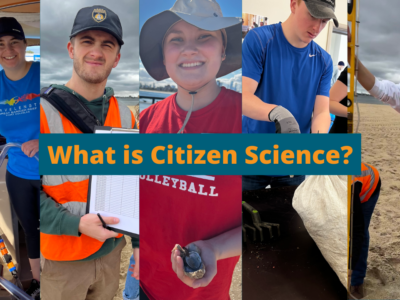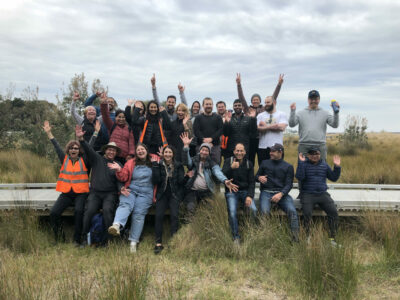Prince Harry and Meghan Markle are currently touring Australia for the first time together, with the Duke and Duchess of Sussex prioritising meeting as many members of the community as possible. As part of their visit, they have participated in a plastic litter beach clean-up at South Melbourne beach.

Prince Harry is no stranger to the importance of environmental sustainability, after co-founding The Foundation of Prince William and Prince Harry with his brother in 2009, which has global environmental sustainability as one of its focuses. Prince Charles himself described swimming at Elwood Beach in the Port Phillip Bay in 1970 like “swimming in diluted sewage”. The Duke and Duchess’s decision to spend time cleaning plastic litter around Port Phillip Bay illustrates the scale of the problem and how we can all take action to address it.
Research by the Port Phillip EcoCentre has found that 828 million pieces of litter flow into the Port Phillip Bay every year, with 74% of these items being microplastics. Polystyrene, plastic straws, nurdles (pre-production microplastic pellets, around the size of a grain of rice), soft plastic, and hard plastic remnants of larger items are the most commonly found types of litter in the Bay. Sadly, this is a common occurrence throughout the world.
Over 80% of the aquatic life found in the Port Phillip Bay is found nowhere else in the world. From bottlenose dolphins to weedy seadragons to over 3000 species of molluscs, Port Phillip Bay’s biodiversity is far greater than most locals or visitors would imagine. One of the major threats these species face is ingesting microplastics and other forms of litter. Earlier this year, a pregnant pygmy sperm whale died in Williamstown with a belly full of plastic bags. Plastic pollution in the Bay may also pose a risk to human health, if humans eat seafood which has consumed microplastics.


Over 80% of the aquatic life found in the Port Phillip Bay is found nowhere else in the world. From bottlenose dolphins to weedy seadragons to over 3000 species of molluscs, Port Phillip Bay’s biodiversity is far greater than most locals or visitors would imagine. One of the major threats these species face is ingesting microplastics and other forms of litter. Earlier this year, a pregnant pygmy sperm whale died in Williamstown with a belly full of plastic bags. Plastic pollution in the Bay may also pose a risk to human health, if humans eat seafood which has consumed microplastics.
It’s clear that plastic pollution has far-reaching consequences on the Port Phillip Bay: ranging from environmental to economic to cultural, and the Victorian Government is now moving to officially recognise plastic as a pollutant to our Bay. While Prince Harry and Meghan Markle may not know the extent of the plastic pollution crisis in the Port Phillip Bay and the effects it is having throughout Victoria, what we can learn from them is that it is all of our responsibilities to take care of the Port Phillip Bay, even through something as small as doing a beach litter clean-up.


